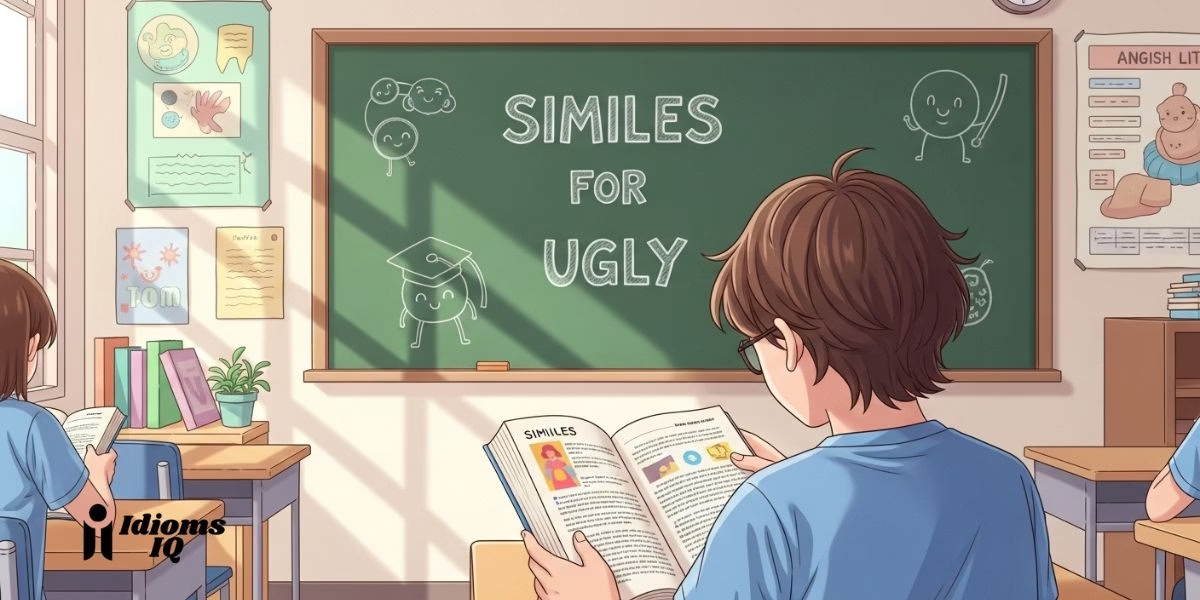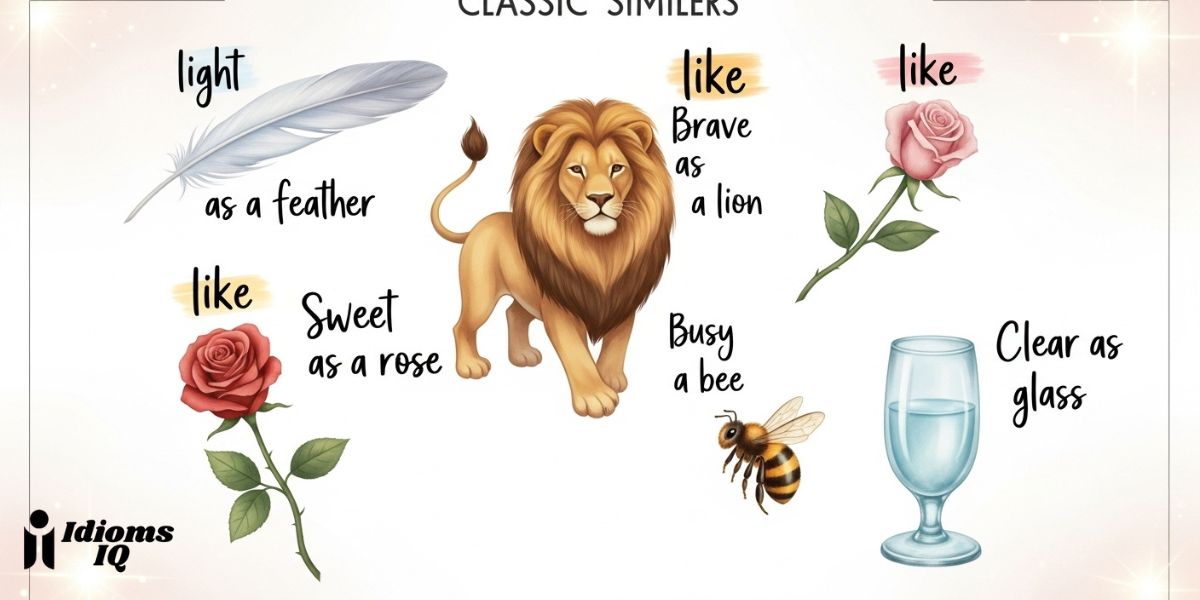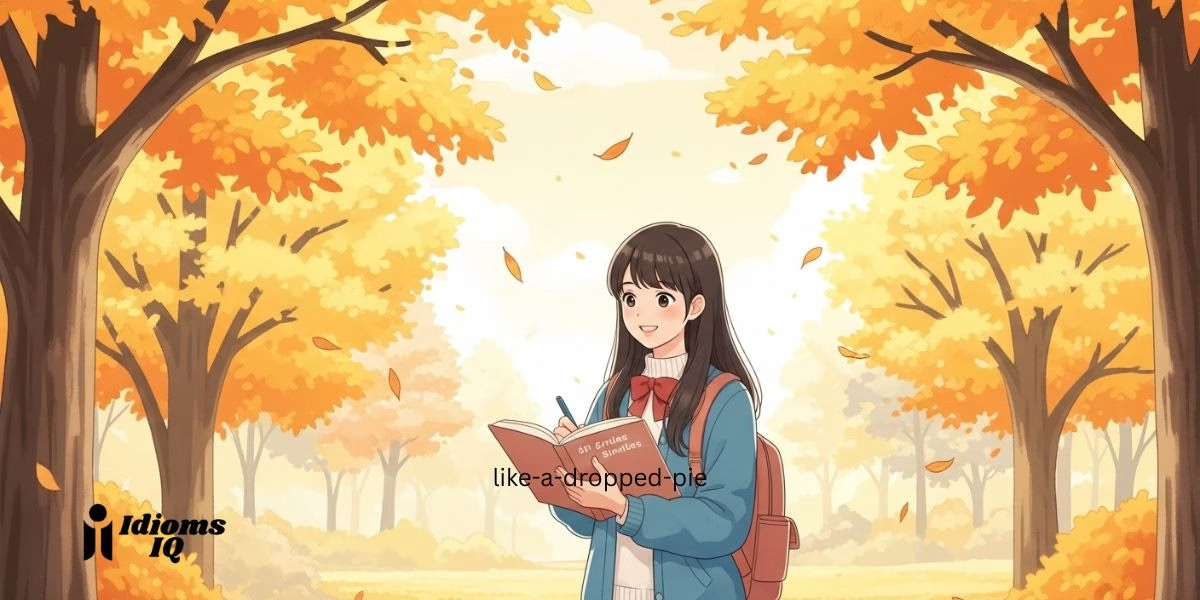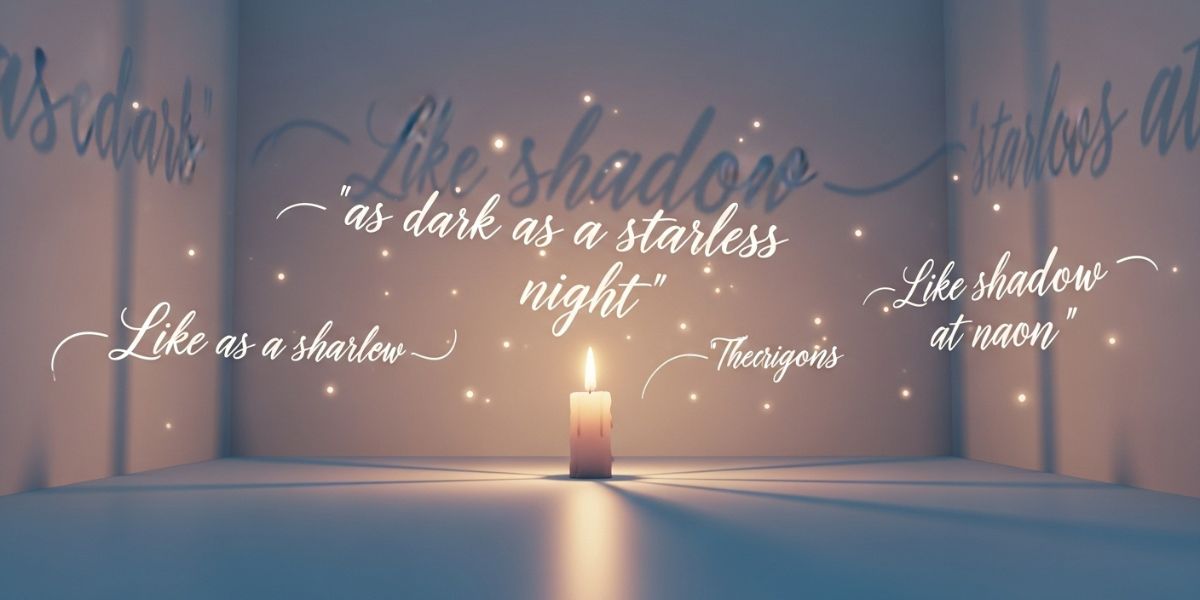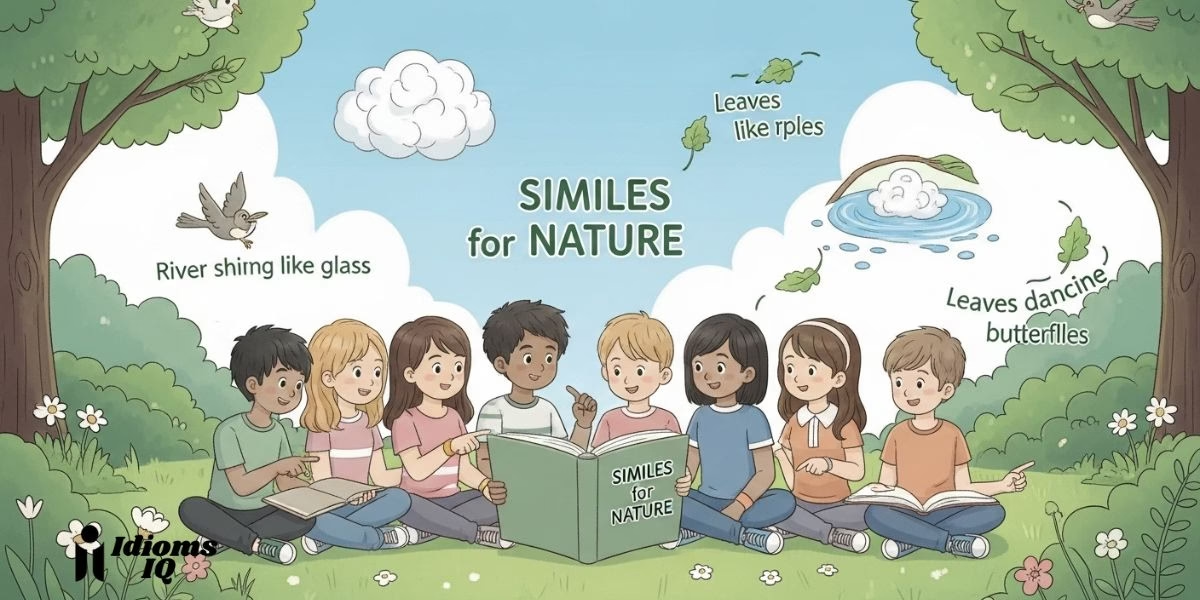
Have you ever stood before a breathtaking sunset or a towering forest and felt utterly speechless? Nature’s beauty can be so profound that simple words often fall short. This is where the magic of the simile comes in. A simile is a figure of speech that makes a comparison between two different things using the words “like” or “as.” It’s a simple trick that unlocks a world of creative expression.
In art, poetry, and everyday language, similes are the bridges that connect the wonders of the natural world to our own human experiences. They allow us to paint vivid pictures with our words. This article explores 40 beautiful similes for nature, complete with their meanings and examples, to help you capture its incredible creativity and emotion in your own descriptions.
Related: similes for happiness
Why We Use Similes to Describe Nature
Nature is vast, powerful, and often abstract in its beauty. Similes are essential tools that help us anchor these grand concepts in relatable terms. By comparing the unknown to the known (e.g., “the lake was as smooth as glass”), we can instantly create a sharp, clear image in the mind of our audience.
Similes evoke specific emotions by linking a natural element to a feeling (“the wind howled like a wolf”), and they make the textures, sounds, and sights of the wild tangible. They are the brushstrokes of language that artists and writers use to bring a scene to life.
Similes for Nature
Here is a collection of similes to help you describe the natural world with fresh eyes and a richer vocabulary.
1. The Lake was as Smooth as Glass
- Meaning: The surface of the water was perfectly still, flat, and reflective.
- Usage Example: “At dawn, before the boats set out, the lake was as smooth as glass.”
- This classic simile is used to convey a sense of perfect calm and tranquility.
2. Clouds Drifted Like Cotton Balls
- Meaning: The clouds were white, fluffy, and appeared soft and light.
- Usage Example: “It was a perfect summer day, with big, puffy clouds drifting like cotton balls in the blue sky.”
- This simile is often used to describe fair-weather cumulus clouds, evoking a sense of childlike wonder.
3. The Sun Shone Like a Polished Gold Coin
- Meaning: The sun was perfectly round, bright, and yellow, with a metallic brilliance.
- Usage Example: “High in the cloudless sky, the desert sun shone like a polished gold coin.”
- This simile emphasizes the intense, valuable, and brilliant quality of the sun.
4. Stars Twinkled Like Scattered Diamonds
- Meaning: The stars in the night sky were bright, sparkling, and precious.
- Usage Example: “Away from the city lights, the stars twinkled like scattered diamonds on black velvet.”
- This common simile conveys the immense beauty and preciousness of a clear night sky.
5. The Wind Howled Like a Lone Wolf
- Meaning: The sound of the wind was a long, mournful, and eerie cry.
- Usage Example: “As the storm approached, the wind howled like a lone wolf outside our window.”
- This auditory simile creates a feeling of wildness, loneliness, and even danger.
6. Rain Fell Like a Silver Curtain
- Meaning: The rain was falling so steadily and densely that it obscured the view.
- Usage Example: “We watched from the porch as the rain fell like a silver curtain, hiding the world from sight.”
- This visual simile emphasizes the density and beauty of a heavy downpour.
7. The Forest was as Silent as a Cathedral
- Meaning: The forest had a deep, reverent, and awe-inspiring quietness.
- Usage Example: “Deep among the ancient redwoods, the forest was as silent as a cathedral.”
- This simile conveys a sense of sacredness and profound peace.
8. Trees Stood Like Silent Sentinels
- Meaning: The trees were tall, motionless, and seemed to be guarding the area.
- Usage Example: “A row of tall pine trees stood like silent sentinels at the edge of the cliff.”
- This personifies the trees, giving them a protective and watchful quality.
9. The River Moved Like a Snake
- Meaning: The river had many curves and bends, winding its way through the landscape.
- Usage Example: “From the top of the hill, we could see the river moving like a giant snake through the valley.”
- This simile vividly describes the meandering shape of a river.
10. Snow Fell as Softly as a Whisper
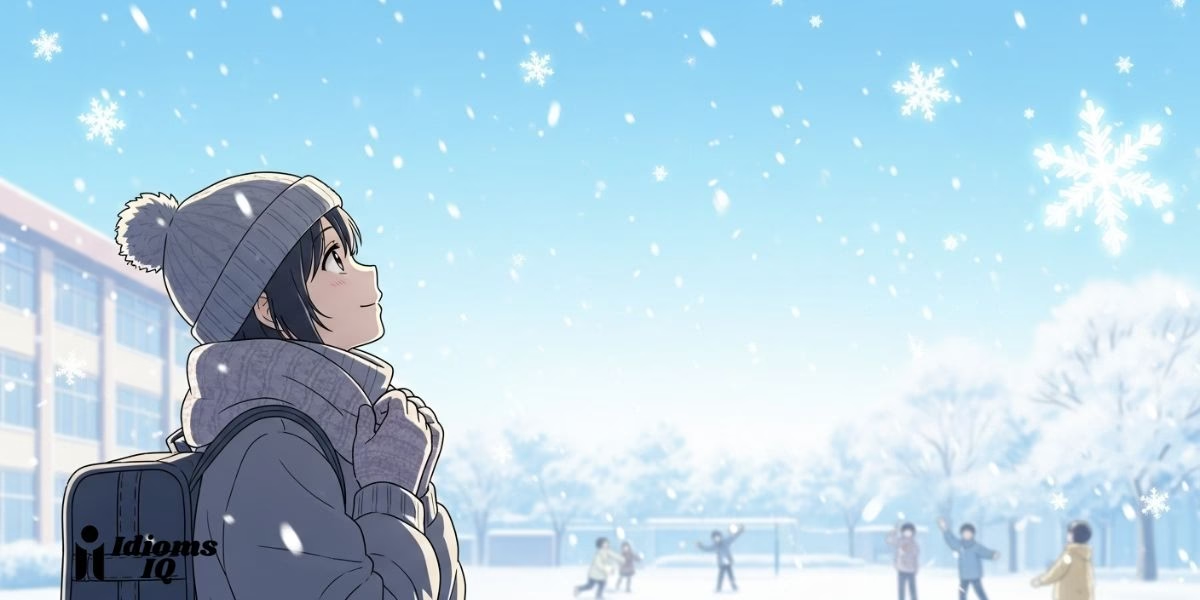
- Meaning: The snowfall was extremely light, gentle, and quiet.
- Usage Example: “There was no wind, and the snow fell as softly as a whisper, each flake distinct.”
- This simile appeals to our sense of sound (or lack thereof) to describe a peaceful snowfall.
11. The Mountains Rose Like Jagged Teeth
- Meaning: The mountain peaks were sharp, pointed, and uneven.
- Usage Example: “The explorers faced a difficult climb, as the mountains rose before them like jagged teeth.”
- This simile often suggests a landscape that is harsh, dangerous, and formidable.
12. Thunder Grumbled Like a Distant Giant
- Meaning: The sound of the thunder was a low, deep, and rolling noise.
- Usage Example: “The thunder grumbled like a distant giant, warning us of the coming storm.”
- This personification of thunder makes it sound like a large, grumpy creature.
13. Lightning Flashed Like a Celestial Camera
- Meaning: The flash of lightning was a sudden, brilliant burst of light that illuminated everything for a moment.
- Usage Example: “For an instant, the whole landscape was lit up as the lightning flashed like a celestial camera.”
- This modern simile connects a natural phenomenon to a familiar technological one.
14. The Fog was as Thick as a Wool Blanket
- Meaning: The fog was very dense, heavy, and obscured all sight.
- Usage Example: “We couldn’t see the road in front of us; the fog was as thick as a wool blanket.”
- This tactile simile helps us feel the heavy, enveloping quality of the fog.
15. The Moss Felt Like a Velvet Carpet
- Meaning: The moss was soft, thick, and luxurious to the touch.
- Usage Example: “He took off his shoes to feel the forest floor, where the moss felt like a velvet carpet.”
- This simile emphasizes the texture of the moss, inviting a sensory experience.
16. The Desert Stretched Out Like a Golden Ocean
- Meaning: The desert was a vast, rolling expanse of sand with a uniform colour.
- Usage Example: “As far as the eye could see, the desert stretched out like a golden ocean of dunes.”
- This simile beautifully captures the immense scale and wave-like shapes of a sandy desert.
17. The Waterfall Roared Like a Freight Train
- Meaning: The sound of the waterfall was incredibly loud, powerful, and continuous.
- Usage Example: “We heard the waterfall long before we saw it; it roared like a freight train.”
- This auditory simile effectively conveys the immense power and volume of a large waterfall.
18. The Air was as Crisp as an Apple
- Meaning: The air was cool, fresh, and invigorating to breathe.
- Usage Example: “On the first day of autumn, the morning air was as crisp as an apple.”
- This simile connects the feeling of cool air to the satisfying sensation of biting into a fresh apple.
19. The Night was as Black as Ink
- Meaning: The night was completely dark, without any light from the moon or stars.
- Usage Example: “In the moonless forest, the night was as black as ink, and we had to rely on our torches.”
- This is a classic simile used to describe absolute darkness.
20. Dawn Broke Like a Cracked Egg
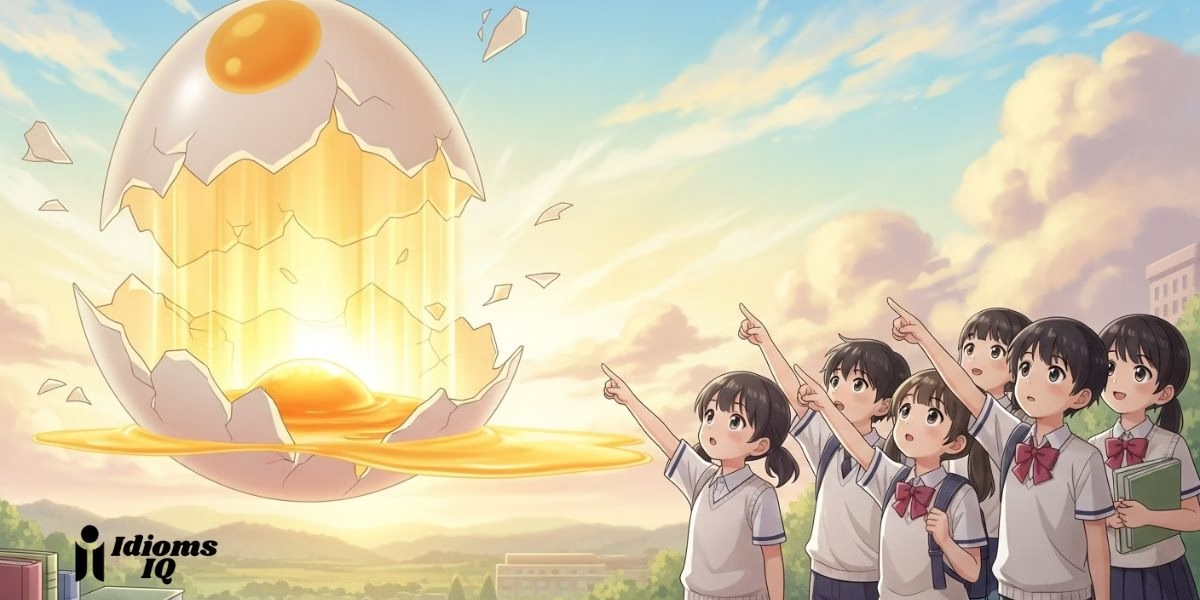
- Meaning: The first light of dawn appeared as a line on the horizon, spilling colours into the sky.
- Usage Example: “The dawn broke like a cracked egg, spilling yellow and orange light across the dark clouds.”
- This is a highly creative and visual simile for the beginning of a sunrise.
21. The Willow Branches Drooped Like a Curtain of Green Hair
- Meaning: The long, thin branches of the willow tree hung down gracefully.
- Usage Example: “The children hid behind the willow branches, which hung down like a curtain of green hair.”
- This simile personifies the willow tree, giving it a gentle, flowing quality.
Related: Similes for Autumn
22. Autumn Leaves Fluttered Down Like Colourful Confetti
- Meaning: The falling leaves were small, numerous, and created a celebratory effect.
- Usage Example: “The children ran through the park as the autumn leaves fluttered down like colourful confetti.”
- This simile associates the beauty of falling leaves with joy and celebration.
23. The Frost on the Window Looked Like Delicate Lace
- Meaning: The patterns created by the frost were intricate, fine, and beautiful.
- Usage Example: “She woke to find the frost on the window had formed patterns as intricate as delicate lace.”
- This simile highlights the artistry found in natural phenomena.
24. The Air Before the Storm was as Heavy as a Blanket
- Meaning: The atmosphere was humid, oppressive, and still.
- Usage Example: “You could feel the storm coming; the air was as heavy as a blanket.”
- This tactile simile conveys the physical sensation of high humidity and atmospheric pressure.
25. The Tall Prairie Grass Swayed Like a Chorus Line of Dancers
- Meaning: The grass moved in unison with the wind in a rhythmic and coordinated way.
- Usage Example: “A single breeze set the whole field in motion; the tall grass swayed like a chorus line of dancers.”
- This simile brings a sense of performance and synchronized beauty to the landscape.
26. The Creek Snaked Through the Valley Like a Serpent
- Meaning: The small river followed a winding, curving path.
- Usage Example: “The trail followed the creek, which snaked through the valley like a silver serpent.”
- Similar to “like a snake,” this simile adds a touch of mythic or dangerous beauty.
27. The Canyon was Like a Deep Scar on the Face of the Earth
- Meaning: The canyon was a massive, long fissure in the landscape.
- Usage Example: “From the air, the Grand Canyon looked like a deep and ancient scar on the face of the earth.”
- This simile personifies the planet and emphasizes the dramatic and almost violent formation of the canyon.
28. The Sun’s Rays Were Like Golden Threads
- Meaning: The beams of sunlight, especially through clouds or trees, were long, thin, and luminous.
- Usage Example: “The sun’s rays pierced the forest canopy, looking like golden threads in the dusty air.”
- This simile captures the beautiful effect known as crepuscular rays.
29. The Sea Sparkled as if it Were Filled with Stars
- Meaning: The reflection of the sun on the water created countless points of bright, glittering light.
- Usage Example: “From the cliff top, the sea sparkled as if it were filled with stars, even in the middle of the day.”
- This simile creates a magical link between the sea and the cosmos.
30. The Cave Entrance was as Dark as a Forgotten Secret
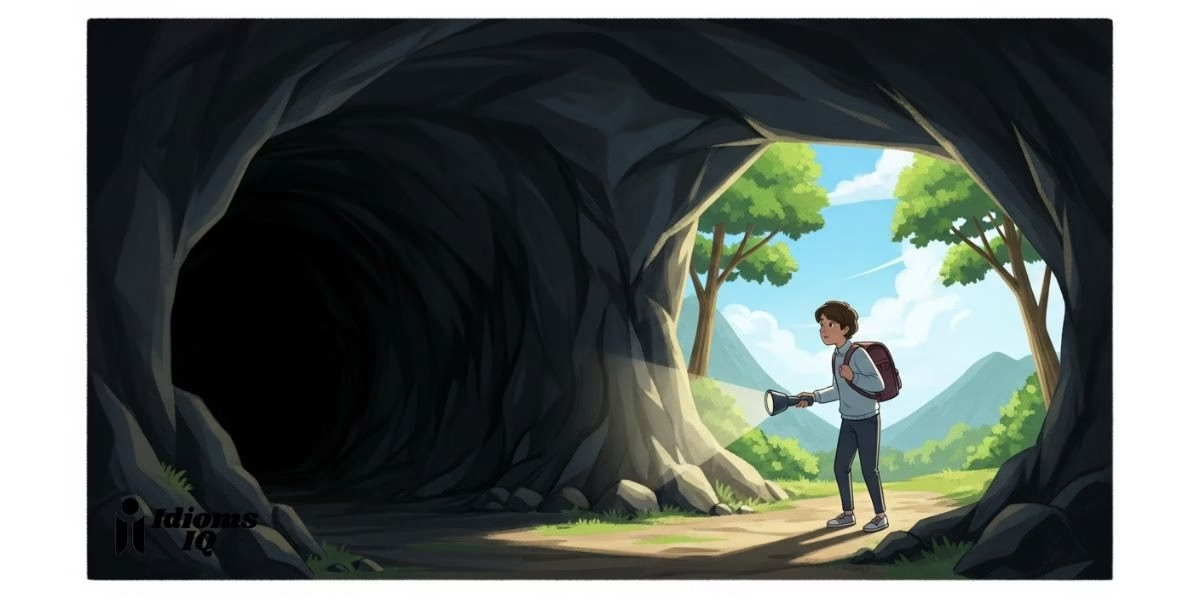
- Meaning: The entrance to the cave was forbiddingly dark and mysterious.
- Usage Example: “The children hesitated, as the cave entrance was as dark as a forgotten secret.”
- This simile adds a layer of mystery and psychological depth to the description of darkness.
31. The Field of Wheat Rippled Like a Golden Sea
- Meaning: The wind moving through the vast field of wheat created a wave-like motion.
- Usage Example: “The farmer looked out at his crop, a field of wheat that rippled like a golden sea.”
- This classic simile beautifully captures the motion and scale of a large agricultural landscape.
32. The Pebbles in the Stream were as Smooth as Worry Stones
- Meaning: The stones had been worn down by the water until they were perfectly smooth and pleasing to touch.
- Usage Example: “She collected pebbles from the stream that were as smooth as worry stones.”
- This tactile simile connects a natural object to a familiar, comforting human one.
33. The Poppy Field was as Red as a Splash of Paint
- Meaning: The colour of the field was a solid, vibrant, and dramatic red.
- Usage Example: “Against the green hills, the poppy field stood out, as red as a fresh splash of paint.”
- This simile emphasizes the intensity and artificial-looking brightness of the colour.
34. The Pine Needles were as Sharp as Daggers
- Meaning: The needles were very pointed and could prick the skin.
- Usage Example: “He had to be careful as he walked through the undergrowth, where the pine needles were as sharp as daggers.”
- This simile conveys a sense of danger and sharpness.
35. The Island Looked Like an Emerald Set in a Sapphire Sea
- Meaning: The lush green island stood out beautifully against the deep blue water.
- Usage Example: “From the plane, the tropical island looked like a perfect emerald set in a sapphire sea.”
- This simile uses the metaphor of precious gems to describe the rich colours of the landscape.
36. The Stream Chattered Like Gossiping Friends
- Meaning: The sound of the water flowing over rocks was light, quick, and continuous.
- Usage Example: “He sat by the stream, which chattered like gossiping friends, and felt his worries wash away.”
- This auditory simile personifies the stream, giving it a happy and sociable character.
37. The Trees in Winter Stood Like Skeletons
- Meaning: The bare branches of the deciduous trees resembled the bones of a skeleton.
- Usage Example: “Against the grey sky, the trees in winter stood like skeletons, waiting for spring.”
- This simile creates a stark, slightly morbid image that perfectly captures the feeling of winter.
38. The Waves Advanced on the Shore Like an Invading Army
- Meaning: The waves moved forward relentlessly and powerfully.
- Usage Example: “During the storm, the waves advanced on the shore like an invading army, gaining ground with each crash.”
- This simile highlights the aggressive and unstoppable power of a stormy sea.
39. The Heat of the Desert was Like a Physical Blow
- Meaning: The heat was so intense it felt like a tangible force hitting the body.
- Usage Example: “As he stepped out of the car, the heat of the desert was like a physical blow.”
- This powerful simile conveys the overwhelming and oppressive nature of extreme heat.
40. The Moon Hung in the Sky Like a Pale Ghost
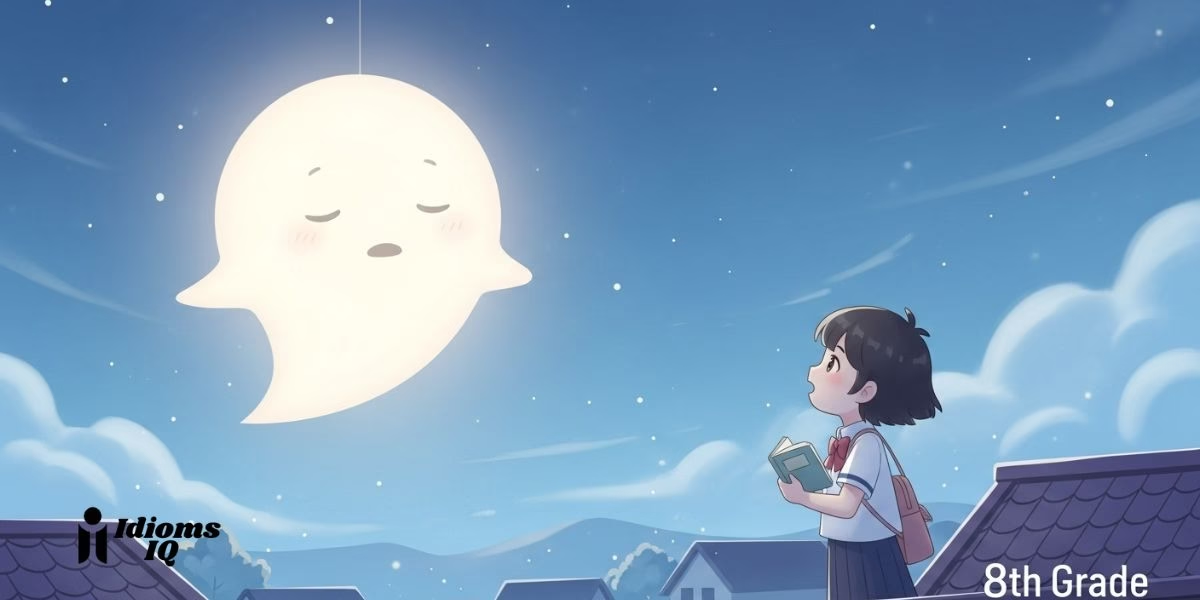
- Meaning: The moon was faint, white, and had an ethereal or eerie quality.
- Usage Example: “Even after the sun had risen, the moon hung in the sky like a pale ghost.”
- This simile is often used to describe the moon when it is visible during the daytime.
Practice Your Skills: Fill in the Blanks
Ready to try your hand at creating vivid descriptions? Fill in the blanks below to complete the similes.
- On the windless morning, the lake’s surface was as smooth ________________.
- The thunder rumbled in the distance ________________ waking up.
- The tall, imposing pine trees stood at the forest’s edge ________________.
- The fog was so thick it felt ________ a wet blanket.
- In the autumn breeze, the falling leaves drifted ________________.
- From the airplane, the winding river below looked ______ a silver ribbon.
- The stars in the remote desert sky sparkled ________________.
- The sound of the powerful waterfall was __________ a constant roar.
- The silence in the deep cave was as profound ________________.
- The fresh mountain air felt as crisp ________________.
Answers
- as glass
- like a giant
- like sentinels
- like
- like lazy butterflies
- like
- like diamonds
- like
- as a tomb
- as an apple
Conclusion
Similes are more than just a literary device; they are a fundamental way we connect our human experience to the world around us. They allow us to translate the awe inspiring beauty of nature into a shared language of emotion and imagery.
By learning to see and use similes, you not only enrich your vocabulary but also deepen your own appreciation for the creative wonders of nature. We encourage you to practice using these phrases and, more importantly, to start inventing your own unique similes to describe what you see.


